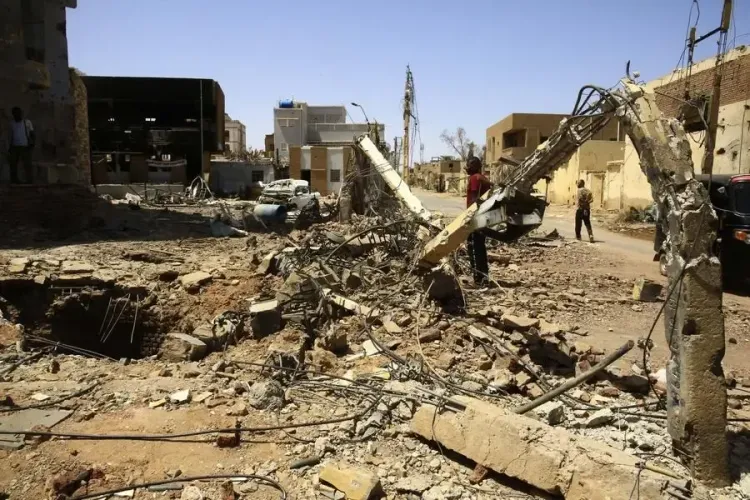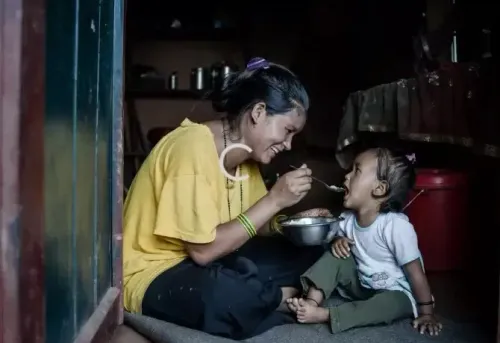Is Sudan's Violence Escalating Amidst a Cholera Crisis in Darfur?

Synopsis
Key Takeaways
- Humanitarian Crisis: El Fasher faces a sharp decline in humanitarian conditions.
- Cholera Outbreak: Over 5,200 suspected cholera cases reported in South Darfur.
- Displacement: Around 7,500 people have fled due to violence.
- UN Response: A vaccination campaign targets 1.9 million people.
- Call to Action: Urgent measures needed to protect civilians and combat cholera.
United Nations, Sep 23 (NationPress) UN humanitarian officials have observed a significant decline in the humanitarian landscape of El Fasher, the capital of North Darfur, while the United Nations and its partners strive to combat a cholera outbreak spreading across western Darfur.
"Deadly assaults and new displacements intensify the plight of civilians," stated the UN Office for the Coordination of Humanitarian Affairs (OCHA).
"The ongoing violence severely hampers humanitarian assistance efforts."
The International Organisation for Migration reported that nearly 7,500 individuals fled the Abu Shouk displacement camp and nearby areas of El Fasher due to escalating violence on Thursday and Friday.
UN Under-Secretary-General for Humanitarian Affairs and Emergency Relief Coordinator Tom Fletcher expressed grave concerns over the weekend, indicating that El Fasher is on the edge, with civilians facing famine-like conditions.
He urged a cessation of hostilities between the Rapid Support Forces and the Sudanese Armed Forces, highlighting the critical need to safeguard civilians and facilitate humanitarian access, as reported by the Xinhua news agency.
Despite the insecurity, a cholera vaccination initiative, supported by the UN and its partners, has commenced across western Darfur, aiming to immunize 1.9 million individuals.
OCHA noted over 5,200 suspected cholera cases in South Darfur, with more than 250 fatalities reported since May.
As per the WHO, cholera is an acute diarrheal disease caused by the ingestion of food or water contaminated with the bacterium Vibrio cholerae. It poses a significant global public health challenge and reflects disparities in social and economic development. Access to safe water, adequate sanitation, and hygiene is crucial for preventing cholera and other waterborne illnesses.
Most individuals infected with cholera exhibit mild to moderate diarrhea and can be treated with oral rehydration solutions (ORS). However, the disease can escalate swiftly, making prompt treatment essential to save lives. Severe cases require intravenous fluids, ORS, and antibiotics.
Countries must establish robust epidemiological and laboratory capabilities to rapidly identify and track outbreaks and inform responses.
Cholera outbreaks are common in certain nations while being sporadic in others, sometimes occurring years apart. The disease correlates with limited access to safe water, basic sanitation, and poor hygiene standards, often exacerbated by conflict, population dislocation, climate events like cyclones, floods, or droughts, and insufficient investment in improving WASH services and infrastructure.
The WHO has recorded a consistent rise in cholera cases globally in recent years. In 2023, a total of 535,321 cases and 4,007 deaths were reported to the WHO from 45 countries. The disparity between these numbers and the estimates by researchers is likely due to inadequate surveillance systems and unreported cases stemming from fears of repercussions for trade and tourism.








